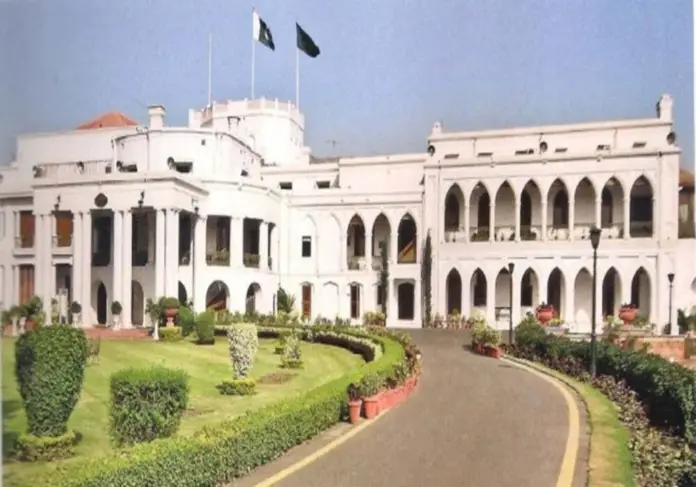Almost all the service delivery sectors of the state are on the verge of collapse, and new interventions are only adding fuel to the fire.
There was no concept of performance in the state-run organisations though a large army of employees has been enrolled.
Just to the surprise of many during the three and half years of the Pakistan Tehreek-i-Insaf (PTI) government, monetary benefits of public sector employees increased with a ratio that can be more than previous governments.
Moreover, there is no study on these blessings and their impact on the system. The general perception is that the incentives further slowed the performance as officials have demanded more perks. The culture of not working has been entrenched to such a point that no one even questions it any longer.
There is a general tendency that you don’t work; in many cases, if you do, you demand gratification.
As per the investigations of this newspaper, the concept of internal accountability, supervision, key performance indicators has lost its place. They have been replaced by unions, pressure groups, political or administrative patronising or court stay orders. The taxpayers are suffering.
State-run giants like Pakistan International Airlines (PIA), Pakistan Railways, Pakistan Post, Pakistan Steel and more were rendering hundreds of billions of rupees deficit annually. Many – including railways – can’t even pay the pension bills of their retired employees.
But on the other side, we see several unions blocking the entrance point of the civil secretariat and the Lower Mall for the public.
Instead of questioning why they were absent from their workplaces, why they have violated the conduct rules, and why the common people’s work is disturbed by blocking roads, the government surrendered to these pressure groups and announced to fulfil their demands. This trend would further encourage “block and gain” culture.
The government must resolve serious issues, but the way both sides have adopted cannot be termed healthy.
Last year, federal employees working in the Pakistan Secretariat adopted the same method, and the government had to surrender. Many more such instances can be quoted.
As per the handout issued on Tuesday, on the direction of the Punjab chief minister, the provincial authorities held a meeting with the representatives of the protesting organisations of government servants at the civil secretariat. The government’s committee met with representatives of APCA, AGEGA and other bodies and agreed on five points.
These points are: the government has decided to allow payment of 15 percent disparity reduction allowance on the running basic pay with effect from March 1, on the analogy of the federal government and the Finance Department will initiate a summary for the approval of the Provincial Cabinet for this purpose.
In the eligibility criteria for the earlier granted 25 percent special allowance 2021, it would be ensured that there is no unwarranted exclusion in this regard, as and when pointed out by the quarters concerned.
In the light of the decision of the Punjab Service Tribunal, the departments of schools and higher education will resolve the issue of pay and service protection of employees of colleges, schools, etc. within 30 days after internal working as per prevalent policy.
The secretary of Primary and Secondary Healthcare will initiate a summary for the upgradation of lady health workers within 30 days.
The Schools Education Department will analyse the issue of the upgradation of lab attendants (BPS-1), and if deemed appropriate, will take up the case with the relevant forum.
“No protest, no gain” is a clear message to the rest of the employees of the province based on the handout. This has become a modus operandi.
This would further destroy the workplace environment and promote an exploitation culture.
It must be recalled that the PTI government had introduced a directory retirement policy to lay off the inefficient deadwood present in the official rank and file, but, surprisingly, the government has yet to start work on it.
PEEDA Act 2006 and other disciplinary measures – like performance evaluation reports (PERs) – have already proved counterproductive.
Government policymakers should formulate a comprehensive policy to promote a culture of service delivery and discourage this crude exercise of blocking roads.
In another development, the government has further empowered the commissioners and deputy commissioners to additionally write the PERs of all the offices working in their jurisdictions. The reason related to the big move is said to be the Murree incident investigations where it was found that the field formations don’t obey the orders passed by the deputy commissioners. Under the old arrangements, the departments were not answerable to the DCs. Now they will be.
Chief Secretary Kamran Ali Afzal was of the view that the DCs must be empowered to implement the government policies. Since the abolition of the magistracy, they had lost many of their powers. After the separation of judiciary from the executive and promulgation of Police Order 2002, the police force was also placed under the control of the district Mayor. The deputy commissioners had been demanding of the government to increase their powers. There was also a demanding proposal that administrative or municipal police should be established under the direct control of the deputy commissioner.
However, the government could not do it. Resultantly, the illegal occupations on the state lands continued unabated. Moreover, without powers, the government’s price control has become a useless tool. Some officers of other departments also raised fingers at this move, saying that they would have to unduly visit the DCs for PERs. Also, it would be another burden on the already burdened DC office, they remarked.
A DC on anonymity said that in place of magisterial powers the government should give us the summary trial powers. It would not only increase service delivery but also the writ of the state that was poor, he said. Moreover, price control and illegal occupations on state lands would also decrease. On top of that, the government, he demanded, should establish separate police under the DCs. The DCs had to perform multiple functions assigned by the government from time to time. They also monitor wheat procurement, price controls, pandemics, disaster management and sugar mills operations and many more. The government should further empower them; otherwise, its control in the district would remain poor.
Likewise, political uncertainty in the federal and provincial capitals has led to go-slow policy in the bureaucracy. All the big and small projects started in South Punjab are at risk.
Moreover, work on the new annual development plan may also be affected inversely.
In another mover, reportedly and as per documents, the government has reappropriated the funds fixed for the rape victims and decided to spend on road infrastructure. This move can’t be justified. There should be judicious reasons for the re-appropriation of funds if direly required. Earlier, it was reported that funds allocated for TEVTA were also reappropriated and the purpose was to spend them on the development of South Punjab.
Many questions rose on these reallocations as there is a ring-fenced budget for South Punjab. Prime Minister Imran Khan has recently also announced Rs500 billion for the development of the area.
There is also news that on superannuation of secretary Higher Education Department Syed Javed Iqbal Bukhari the additional charge of the office has been assigned to the secretary food department, which is astonishing. At present, both departments are quite demanding.
The government was going to start wheat procurement, and a full-time secretary is needed to streamline the massive campaign to procure millions of tonnes of the crop. This department is related to the food security of the country. On the other hand, higher education is also an important area. An all-time seasoned officer with a plan to revolutionise the education sector should be posted instead of running it on a stop-gap arrangement. The additional charge shows that education was not a priority for the government.
Lastly, the water storage in Tarbela Dam was alarmingly low by one and a half lac acres feet. Which agency was responsible here? If prompt steps were not taken, the wheat crisis would become difficult to manage. The dry season and less water for irrigation will force the government to import wheat, further burdening the exchequer.







